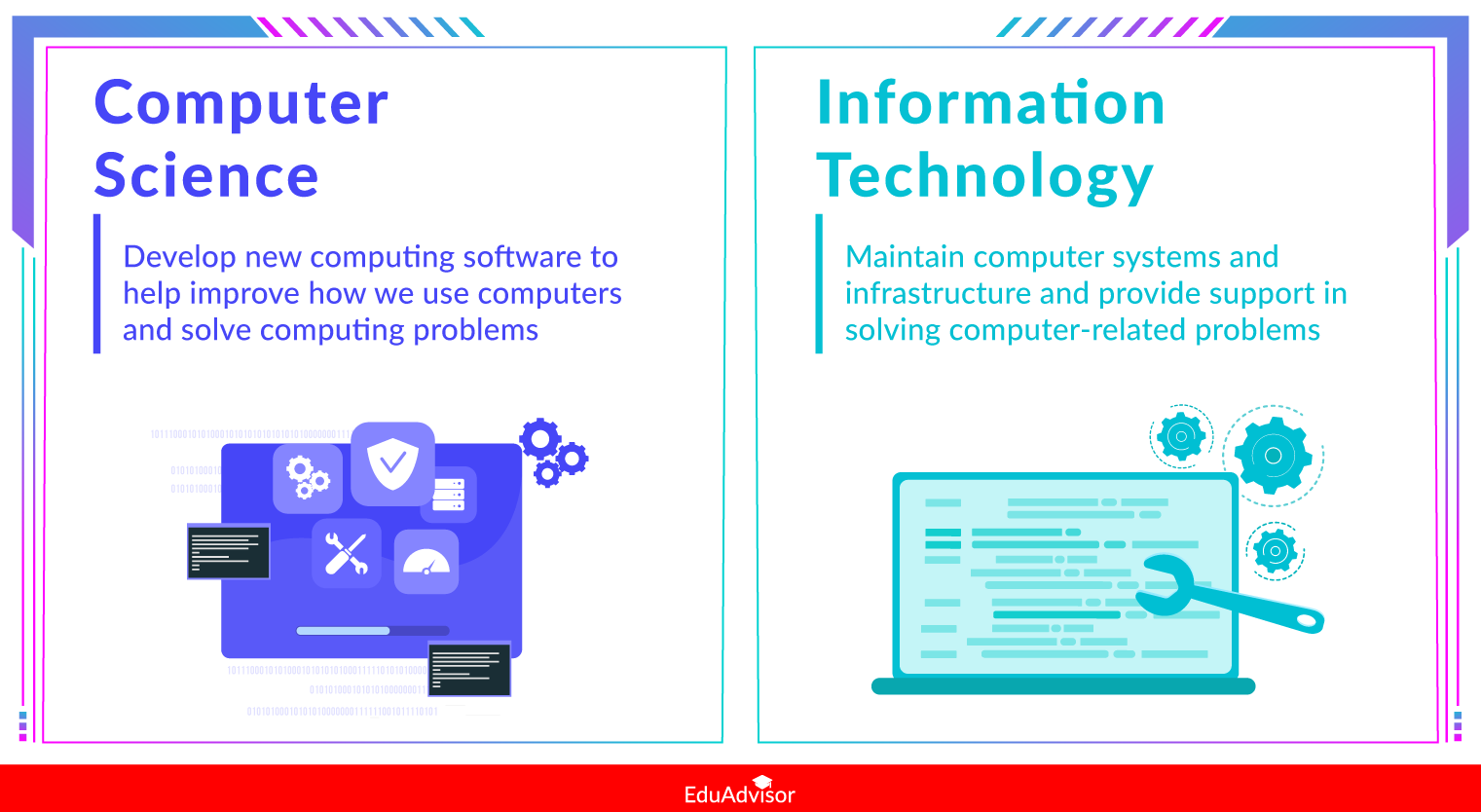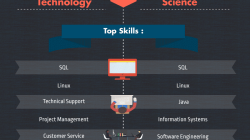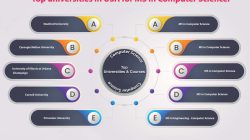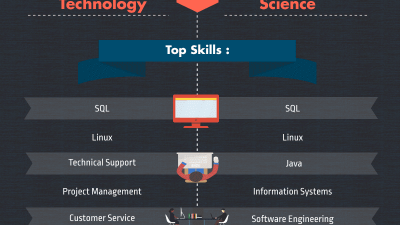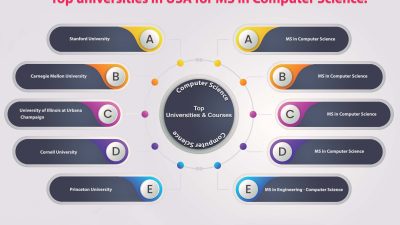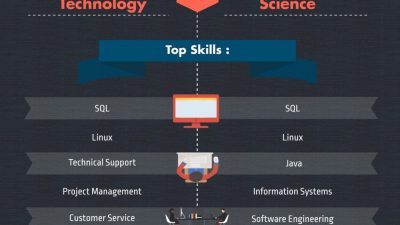
So, you’re standing at a crossroads, eh? A big, important crossroads filled with promising career paths & buzzing with the energy of the tech world. You’re looking at Computer Science (CS) versus Information Technology (IT) degrees, & frankly, it’s enough to make your head spin! Both fields are undeniably hot right now, offering exciting opportunities & impressive salaries. But which one is really right for you? That’s the million-dollar question, isn’t it?
This isn’t just some quick “CS is better” or “IT is the way to go” kind of blog post. We’re diving deep, exploring the nuances, the similarities, & the crucial differences between these two degrees. We’ll pull back the curtain on the curriculum, examine the potential job roles, discuss salary expectations, & help you understand which path aligns better with your unique skills & aspirations. Because let’s be honest, choosing the wrong path can lead to years of potential frustration; but the right one? That can catapult your career into orbit!.
Think of it this way: Computer Science is like being an architect designing the blueprint of a magnificent skyscraper. You’re creating the foundational code, the underlying algorithms, the very core of how a system functions. It’s all about the “how” – understanding the theoretical underpinnings of computing & using that knowledge to build innovative software, develop new languages, & even design entirely new systems from the ground up. It’s challenging, undeniably complex, & intensely rewarding for those who possess a passion for problem-solving & an appetite for intricate detail. It’s a field that demands a deep understanding of mathematics, logic, & abstract concepts. Prepare for late nights, coding challenges, & a journey into the very heart of digital innovation!
Information Technology, on the other hand, is more like being the skilled construction manager overseeing the actual building of that skyscraper. You’re less focused on designing the foundational structure & more on ensuring everything runs smoothly, efficiently, & securely. IT professionals are the problem solvers of the technological realm; troubleshooting network issues, managing databases, securing sensitive information, ensuring systems are up & running 24/7. It’s a hands-on field that often blends practical skills with technical expertise, focusing on the application of technology to solve real-world business problems. Expect plenty of networking, systems administration, & a significant dose of client interaction. Are you a pragmatic problem solver, fascinated by the practical applications of technology? IT might be your perfect match.
This isn’t a competition. It’s about choosing the path that feels most authentic to you; one that ignites your curiosity & allows your skills to shine. So buckle up, friends. We’re about to embark on a fascinating journey of discovery! We’ll break down every aspect, from the specific courses you’ll take to the types of careers you could land – ensuring you make a fully informed decision. Ready? Let’s go!.
Related Post : stevens institute of technology masters in computer science
Computer Science vs. Information Technology: Which Degree is Right for You?
Choosing a college major can feel overwhelming, especially in a rapidly evolving field like technology. Two popular options often leave students scratching their heads: Computer Science and Information Technology. While both relate to computers, they offer vastly varied paths and career prospects. This guide will help you understand the key distinctions between a Computer Science degree and an Information Technology degree, enabling you to make an informed decision.
What is Computer Science?
Computer Science (CS) is the theoretical foundation of information and computation. It delves into the fundamental principles behind computer systems, software, and algorithms. Think of it as the “why” behind the technology – the logic and mathematics that make computers work.
Core Subjects in a Computer Science Degree
A Computer Science degree typically includes courses in: data structures and algorithms, programming languages (Python, Java, C++), database systems, computer architecture, operating systems, discrete mathematics, and artificial intelligence.
Computer Science Degree: Problem-Solving and Theory
Computer Science emphasizes problem-solving and abstract thinking. Students learn to design efficient algorithms, develop software solutions, and understand the theoretical underpinnings of computing. It’s less about fixing existing systems and more about creating new ones.
Career Paths with a Computer Science Degree
Graduates often pursue careers as software engineers, data scientists, database administrators, machine learning engineers, cybersecurity specialists, or study scientists.
Salary Expectations for Computer Science Graduates
Starting salaries for Computer Science graduates are generally high and rival, varying based on location, experience, and specific function. Expect a lucrative career path.
What is Information Technology (IT)?
Information Technology (IT) focuses on the practical application of computer technology. It’s about implementing, managing, and maintaining computer systems, networks, and databases to support organizational objectives. Think of it as the “how” – the hands-on application of computer science principles.
Core Subjects in an IT Degree
An IT degree covers areas like networking, cybersecurity, database management, systems administration, cloud computing, and help desk support. Practical skills are highly emphasized.
IT Degree: Practical Application and Troubleshooting
An IT degree is more hands-on and practical. Students learn to troubleshoot problems, manage networks, and implement IT solutions within organizations.
Career Paths with an IT Degree
Graduates can work as network administrators, systems analysts, database administrators, cybersecurity analysts, help desk technicians, or IT project managers.
Salary Expectations for IT Graduates
IT graduates also enjoy rival salaries, although potentially slightly lower than CS graduates in some specialized areas. The salary scope varies considerably based on function and experience.
Computer Science vs. IT: A Detailed Comparison
Similarities Between Computer Science and IT
Both fields require strong problem-solving skills and a foundational understanding of computers. Many IT functions benefit from a CS background, and vice-versa.
Key Differences: Theory vs. Practice
Computer Science is heavily theoretical, focusing on designing and developing new systems. IT is more practical, focusing on implementing and managing existing systems.
Which Degree Offers Better Job Prospects?
Both fields currently boast strong job prospects. The demand for skilled professionals in both Computer Science and IT remains high. The specific area of specialization within each field will influence job availability.
Which Degree is More Challenging?
Computer Science is generally considered more academically rigorous, demanding a strong mathematical and theoretical foundation. IT often involves more hands-on learning and practical application.
Choosing the Right Degree: Consider Your Interests and objectives
Are you a problem-solver or a hands-on fixer? Do you prefer theoretical ideas or practical applications? What kind of work environment do you envision? Long-term career aspirations: Which path aligns optimal?
Further Considerations: Program Structure and Accreditation
Types of Computer Science Programs (Bachelor’s, Master’s, PhD)
Types of IT Programs (Associate’s, Bachelor’s, certifications)
Importance of Accreditation for Computer Science and IT Degrees Accreditation ensures the program meets quality standards.
Finding the Right College or University for Your Chosen Degree
study programs carefully, considering faculty expertise, facilities, and career services.
Making the Decision: Weighing the Pros and Cons
Pros and Cons of a Computer Science Degree
Pros and Cons of an Information Technology Degree
Asking yourself: What am I passionate about? Reflect on your strengths and interests.
Seeking advice from professionals in the field. Networking is crucial.
Conclusion: Your Journey to a Tech Career Begins Now!
Carefully consider your strengths, interests, and career objectives. The right choice depends entirely on you!

